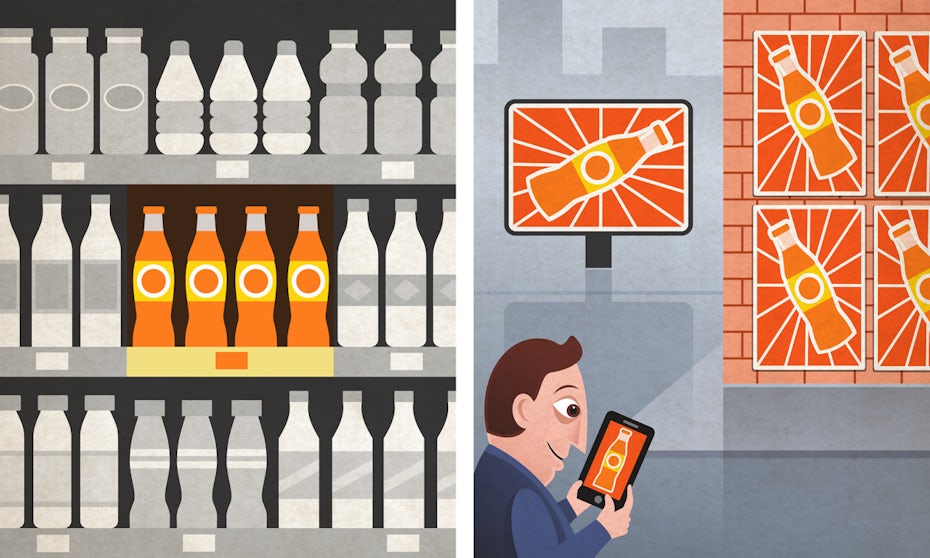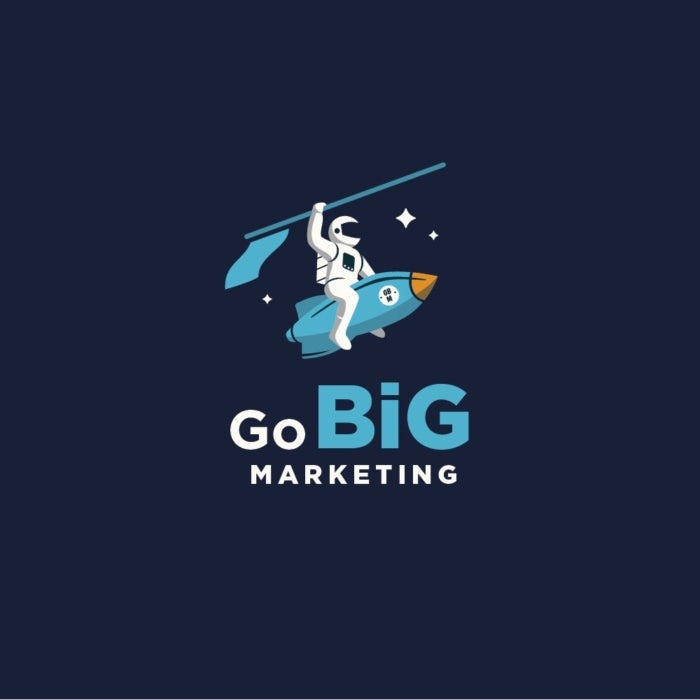When you’re building a business, there are so many buzzwords that get thrown around, it can be hard to keep them straight. And there are two concepts in particular that have a tendency to get lumped together—marketing and branding. So, what’s the difference between marketing vs. branding? In this article we’ll break it down for you.
The truth is, marketing and branding are two very different concepts. And if you want your business to succeed, you need to understand the differences between the two—and how to effectively use each to take your business to the next level.
So, what exactly is branding? What’s marketing? What are the differences between the two—and how can you use both to build a successful, impactful business?

Definitions of marketing vs. branding
—
First things first—before we jump into the differences between marketing and branding, let’s first cover what, exactly, marketing and branding are.

Marketing is defined as the set of tools, processes, and strategies you use to actively promote your product, service, and company. Think of marketing as the actions you take to connect with your customers and get them to buy your products or services.
Branding, on the other hand, is the marketing practice of actively shaping your brand. Branding is about defining who you are as a company. It’s your mission, your values, and what makes you special and unique. It’s your key brand elements, like your logo, your website, and your brand style guidelines. If marketing is what gets people to engage with your company for the first time, branding is what keeps them coming back for years to come.
Think of it like this: if your brand was a Big Mac, your branding would be the “special sauce”—and your marketing would be anything and everything you do to get your customers excited to take a bite (like your commercials, social media ads, and other campaigns).
Differences between marketing vs. branding
—
Alright, so now that we know what they are, let’s talk about the key differences between marketing and branding:
While marketing is used to promote your product or service, branding is used to actively shape your brand and who you are. You need a strategies for both and they have different goals and different results.
- Marketing get’s a customer’s attention, branding is a way to keep their attention
- Marketing drives sales, branding drives recognition and loyalty
- Branding comes first, marketing comes second
- Marketing strategies come and go—but branding is forever
- Branding has just as much of an impact on your team as it does on your customers
Marketing can be a great way to get a customer’s attention, but branding is a great way to keep their attention
No matter what industry you’re in, chances are, you’re just one company in a sea of competition. And if you want to make waves and get your customers attention, marketing is an absolute must.

But once you have your customer’s attention, you need something that’s going to keep that attention—and that’s where branding comes in.
People want to do business with brands they can get behind and brands they believe in—so while marketing will help break through the clutter and get your brand in front of the right people, if you want to keep it there, you need to build a brand that people can connect with.
So, in a nutshell, you need the right marketing strategies to set your brand apart from the competition and say to your customers “Hey! I’m here!”—but you need branding to foster a relationship, creating a long-term connection, and keep them coming back after that initial “hello.”
Marketing drives sales, branding drives recognition and loyalty
At the core, most marketing strategies (think SEO, content marketing or advertising) are meant to drive results—and, more often than not, the results those strategies are trying to drive have to do with sales.

Which is great! If you want your company to succeed, you (of course) need to drive sales.
But branding takes a different—and more long-term—approach. Branding isn’t the best solution if you’re looking to drive sales. But it is the best solution if you’re looking to build brand recognition, drive positive brand sentiment, and foster customer loyalty, which is just as (if not more) important—and which, coincidentally, will have a major impact on your ability to drive sales in the long run.
So, when it comes to sales, think of marketing as a sprint—while branding? That’s more like a marathon.
Branding comes first, marketing comes second
You know the old saying “which came first—the chicken or the egg?” Well, if we’re talking about the business version of that saying, it would probably be more along the lines of “which comes first—branding or marketing?”

In the grand scheme of building your business, branding always comes before marketing. And for good reason! You can’t exactly market a brand you haven’t designed yet.
Before you even think about putting a marketing strategy in place, you need to focus on your branding. Who are you as a brand? What do you want to bring to the marketplace? What are your core values? And, most importantly, how are you going to communicate that to your target customers?
Only when you have the answers to those questions does it make sense to start thinking about marketing. Because once you have your branding in place, you’ll have a better understanding of who you are, who your customer is, and the best ways to connect with that customer—and can build a marketing strategy that brings that to life.
Marketing strategies come and go—but branding is forever
Now, don’t get us wrong—as long as you’re trying to build a successful business, you’re going to need to actively market that business (#captainobvious). But the strategies you use to market your business are temporary; each marketing tactic is going to have a clear beginning, middle, and end.
Branding is different. No matter where you are in your business, you’re always going to be working on defining who you are as a company, shaping your brand’s perception with your audience, and fostering a deeper, more meaningful relationship with your customers. As your company grows and evolves, you’ll need to grow and evolve your branding right along with it.
Bottom line: marketing strategies will come and go (as they should!) But branding? Branding is forever.
Branding has just as much of an impact on your team as it does on your customers
Your team is going to be the people responsible for developing and implementing your marketing strategies. But outside of that (which is, you know…their job), they’re not really going to be impacted by your marketing.

But your branding? That’s an entirely different story.
Your branding can have just as profound an impact on your team as it does on your customers. Just like you need your customers to believe in your brand in order to do business with you, so do your employees. When you build a brand that your team truly believes in, they’re going to be more passionate about and committed to their work. They’ll work hard, push themselves, and bring their best ideas to the table—and your business will thrive as a result.
So, it’s your team’s job to develop your marketing strategy—but if you want to take your business to the next level, it’s your responsibility to create a brand your team is excited about.
Use marketing and branding to take your business to the next level
—
Now that you understand the difference between marketing vs. branding, you have the tools you need to use both to take your business to the next level. So what are you waiting for? Get out there, building your brand, and develop the marketing strategies you need to get that brand in front of your ideal customers!
The post Marketing vs. branding: what’s the difference? appeared first on 99designs.
No comments:
Post a Comment